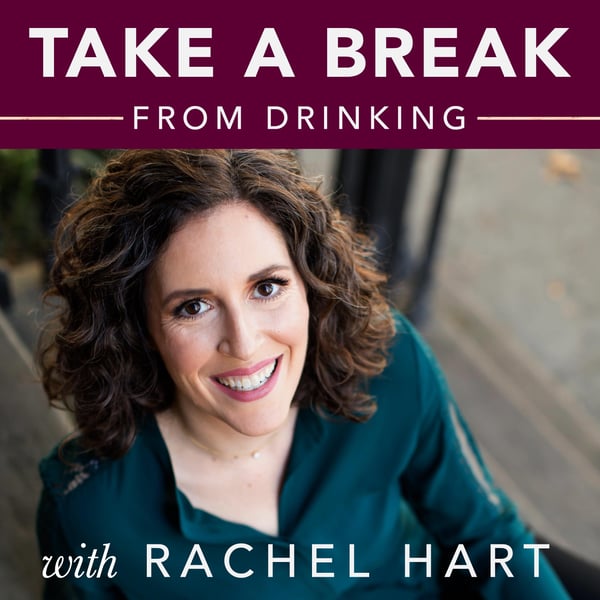401: Why You Shouldn't Demonize Alcohol
Take a Break from Drinking
Rachel Hart
4.8 • 2.7K Ratings
🗓️ 26 November 2024
⏱️ 21 minutes
🧾️ Download transcript
Summary
“Alcohol is poison.” “It’s toxic—why would I put it in my body?” These are common refrains from people who quit drinking. But are they helpful in reshaping your relationship with alcohol?
Humans have used alcohol for centuries to alter how they feel. Demonizing it or treating it as entirely good or entirely bad can block you from deciding its role in your life.
In today’s episode, I explore why this black-and-white mindset lacks nuance, prevents curiosity, and how shame and guilt, while effective in the short term, rarely lead to lasting change.
Find a personalized approach that helps you change your habit in my new book, The Ultimate Guide to Drinking Less, here: https://rachelhart.com/guide/
Discover alternative approaches to drinking less inside our membership program, Take a Break: https://rachelhart.com/tab/
Get the full show notes and more information here: https://rachelhart.com/401
Transcript
Click on a timestamp to play from that location
| 0:00.0 | Do you feel a little defensive when people start talking about the harms of drinking? |
| 0:04.8 | Or maybe you feel annoyed when a newly sober friend starts going on and on about how alcohol is poison or toxic? |
| 0:11.7 | This is episode 401, and I'm explaining why demonizing alcohol or fixating on its harms is not a great way to help you drink less and can actually block you from deciding the role you want alcohol to play in your life. |
| 0:25.2 | Whether you want to drink less or stop drinking, this podcast will help you change the habit from the inside out. |
| 0:32.3 | We're challenging conventional wisdom about why people drink and why it can be hard to resist temptation. |
| 0:38.9 | No labels, no judgment, just practical tools to take control of your desire and stop worrying |
| 0:45.1 | about your drinking. Now here's your host, Rachel Hart. |
| 0:52.9 | So I was talking to my husband recently about a common refrain that you hear from people who no |
| 0:59.1 | longer drink. |
| 1:00.3 | And it's the idea that alcohol is toxic or a poison. |
| 1:04.7 | So maybe if you've gone down a sober curious rabbit hole online, you've come across |
| 1:09.5 | statements like, you know, why would I |
| 1:11.5 | willingly want to poison my body? And I will tell you this, I still, because of the work that I do, |
| 1:18.8 | hear people and hear this kind of messaging a lot. And even today, I find myself feeling a little |
| 1:26.8 | resistant inside when this kind of demonizing of |
| 1:32.2 | alcohol takes center stage. So, you know, I talk about this on the podcast a lot. Alcohol has been |
| 1:38.3 | with humans for thousands of years. It existed well before there were humans. Our species just |
| 1:44.1 | learned how to harness fermentation |
| 1:46.4 | and produce it in large quantities. It is one of many substances that humans figured out how to use |
| 1:53.5 | to change our feeling state. So things like sugar and caffeine and nicotine and cocaine and psilocybin. |
| 2:00.7 | And yes, like most things, if you consume too much |
| 2:05.1 | alcohol, it can definitely harm the body. If you drink too much, it can kill you. And if you have a |
... |
Transcript will be available on the free plan in -126 days. Upgrade to see the full transcript now.
Disclaimer: The podcast and artwork embedded on this page are from Rachel Hart, and are the property of its owner and not affiliated with or endorsed by Tapesearch.
Generated transcripts are the property of Rachel Hart and are distributed freely under the Fair Use doctrine. Transcripts generated by Tapesearch are not guaranteed to be accurate.
Copyright © Tapesearch 2025.

